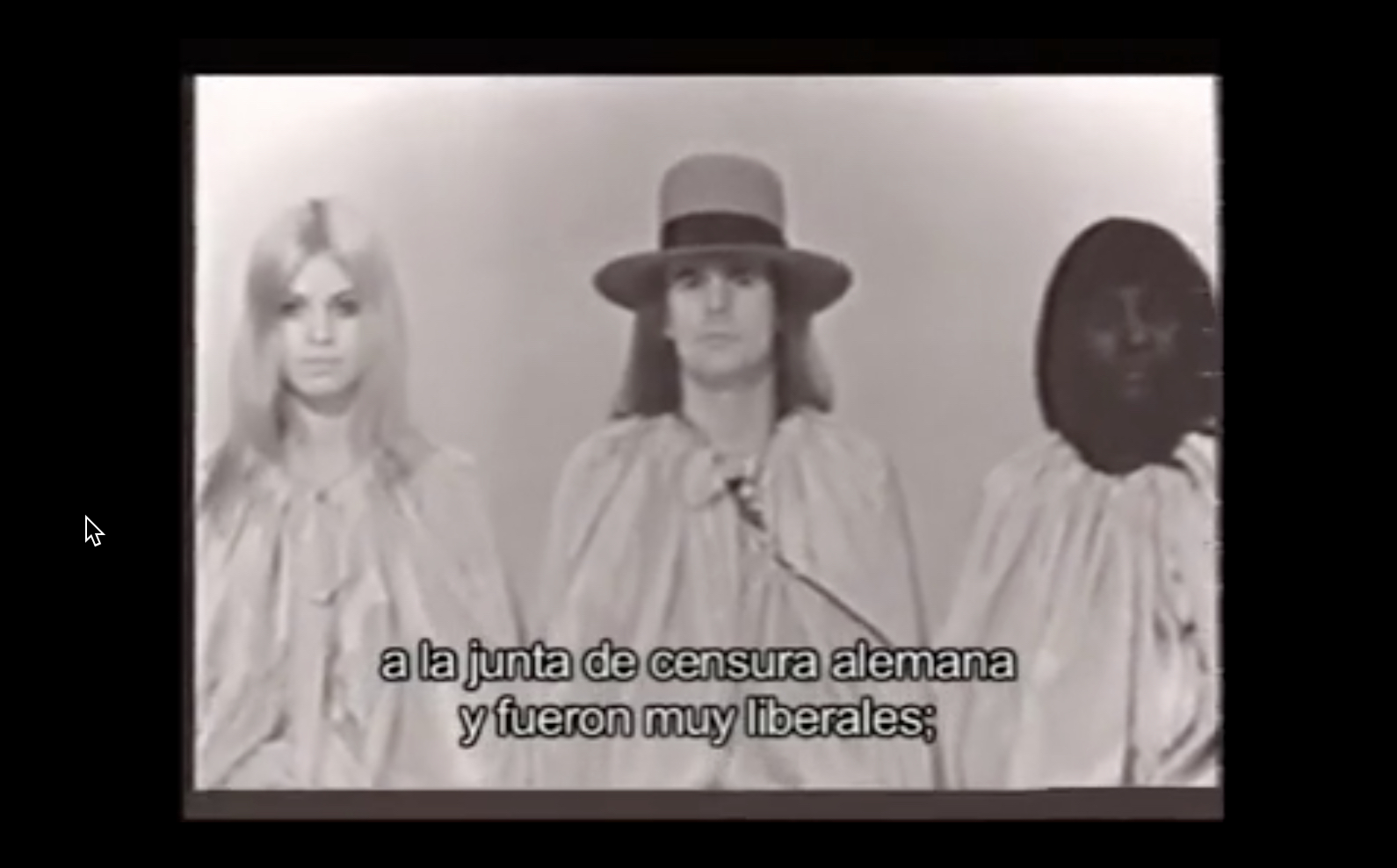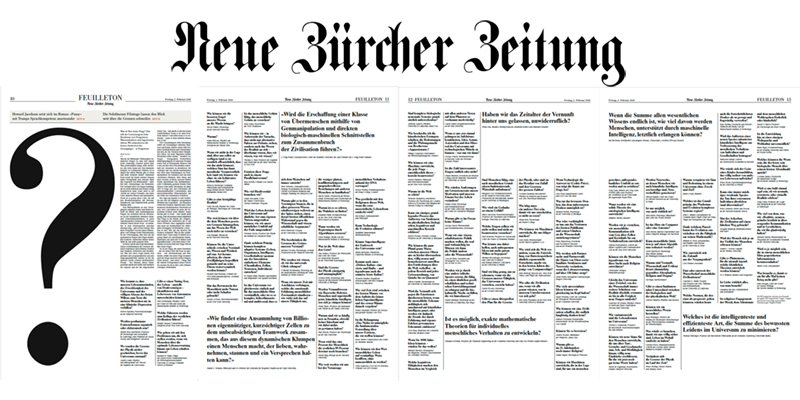"One of the most exciting reading streams ever." — Sueddeutsche Zeitung
"Another devilishly clever question—the 'question' question."
—Stanislas Dehaene
"Fascinating...Each one a little cluster bomb of possibilities."
—Annalena McAfee
"One of the most stimulating pieces of (collective) writing ever."
— Andrian Kreye
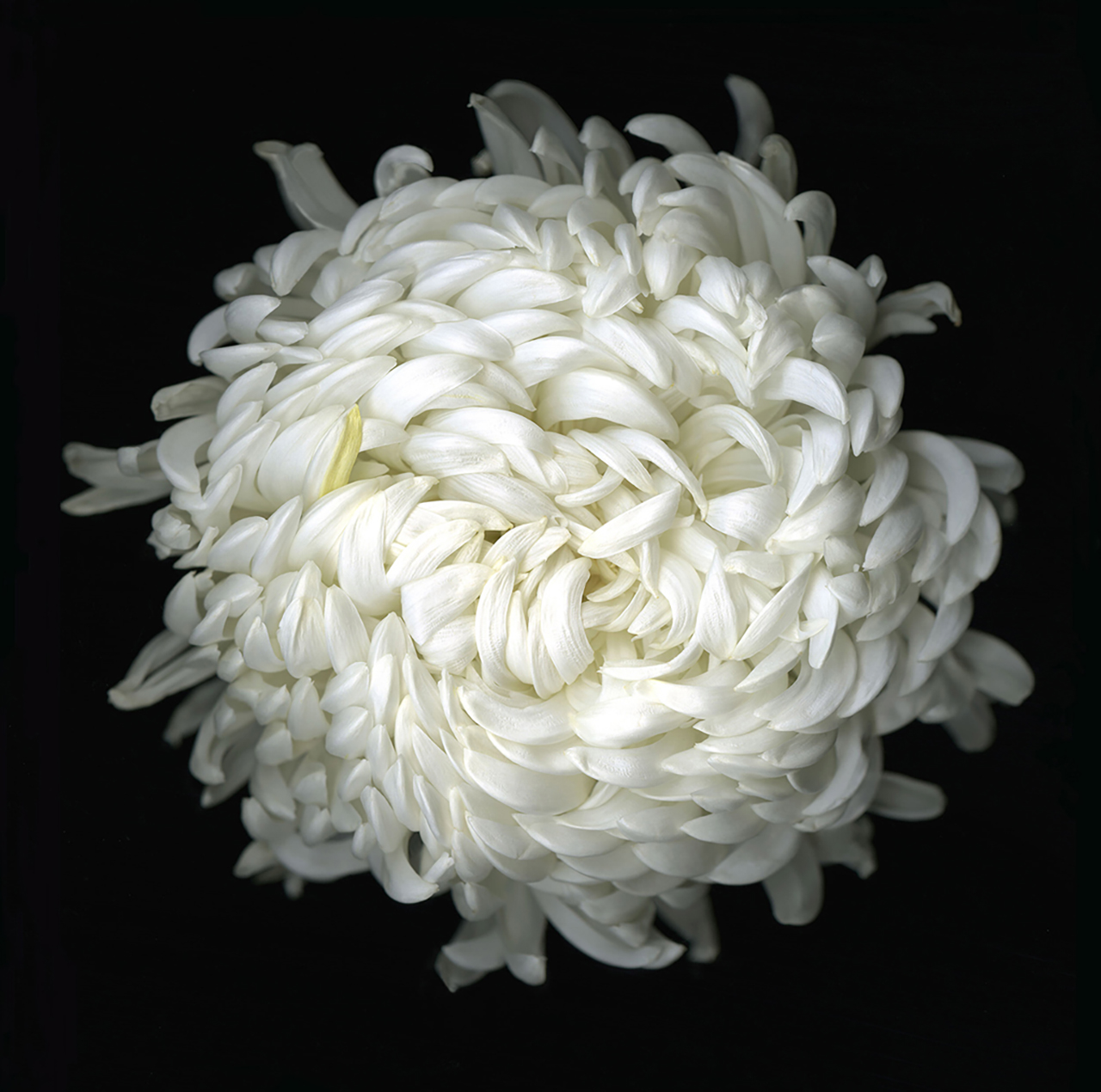
"Chrysanthemum" [expand] by Katinka Matson | katinkamatson.com
"WHAT IS THE LAST QUESTION?"
After twenty years, I’ve run out of questions. So, for the finale to a noteworthy Edge project, can you ask "The Last Question"?
Interrogate Reality
Did I say "twenty years"? My strange obsession with the idea of "Question" goes back to 1968 when I first wrote about the idea of interrogating reality 1…
"The final elegance: assuming, asking the question. No answers. No explanations. Why do you demand explanations? If they are given, you will once more be facing a terminus. They cannot get you any further than you are at present. 2 The solution: not an explanation: a description and knowing how to consider it.
"Everything has been explained. There is nothing left to consider. The explanation can no longer be treated as a definition. The question: a description. The answer: not explanation, but a description and knowing how to consider it. Asking or telling: there isn’t any difference.
"No explanation, no solution, but consideration of the question. Every proposition proposing a fact must in its complete analysis propose the general character of the universe required for the fact. 3
"Our kind of innovation consists not in the answers, but in the true novelty of the questions themselves; in the statement of problems, not in their solutions. 4 What is important is not to illustrate a truth—or even an interrogation—known in advance, but to bring to the world certain interrogations . . . not yet known as such to themselves. 5
"A total synthesis of all human knowledge will not result in huge libraries filled with books, in fantastic amounts of data stored on servers. There's no value any more in amount, in quantity, in explanation. For a total synthesis of human knowledge, use the interrogative."
The conceptual artist/philosopher James Lee Byars contacted me and suggested a collaboration of sorts which resulted in our taking daily walks in Central Park as Byars and I walked and talked, conversing only in interrogative sentences. Does it sound like fun? Want to try it?
James Lee soon began to develop his ideas which led to "The World Question Center":
“To arrive at an axiology of the world's knowledge, seek out the most complex and sophisticated minds, put them in a room together, and have them ask each other the questions they are asking themselves.”
On November 26, 1968, he launched "The World Question Center" in a one-hour television program produced in Brussels at the studios of the Belgian National Television Network and broadcast live to a national audience.
During the hour, he called numerous celebrated intellectuals such as composer John Cage, science fiction writer Arthur C. Clarke, futurist Herman Kahn, artist Joseph Beuys, novelist Jerzy Kosinski, poet Michael McClure, and asked, in various ways, the following:
"I’m trying to find hypotheses that people are working with that are reduced into some type of very simple single question with no explanation, hopefully, that’s important to them in their own evolution of knowledge. Might you offer one that’s personal?"
For the 50th anniversary of "The World Question Center," and for the finale to the twenty years of Edge Questions, I turned it over to the Edgies:
"Ask 'The Last Question,' your last question, the question for which you will be remembered."
—John Brockman
Editor, Edge
____
Notes
1 John Brockman, By The Late John Brockman (New York: Macmillan, 1969)
2 Ludwig Wittgenstein, Zettel, eds. G. E. M. Anscombe and G. H. von Wright, trans. G. E. M. Anscombe(Berkeley: University of California Press, 1967), p. 58e, para. 315.
3 Alfred North Whitehead, Process And Reality (New York: Harper & Row, 1960), p.17.
4 Paul Valery, The Outlook For Intelligence (New York: Harper & Row, 1962).
5 Alain Robbe-Grillet, For a New Novel, trans. Richard Howard (New York: Grove Press, 1965).
Russell Weinberger, Associate Publisher
Nina Stegeman, Associate Editor
Katinka Matson, Co-founder & Resident Artist
Thanks to Stewart Brand, Kevin Kelly, and George Dyson for 20 years of advice and support.
What Is The Last Question?
(start reading here)
Contributors: [PAGE 1] Scott Aaronson, Anthony Aguirre, Dorsa Amir, Chris Anderson, Ross Anderson, Alun Anderson, Samuel Arbesman, Dan Ariely, Noga Arikha, W. Brian Arthur, Scott Atran, Joscha Bach, Mahzarin Banaji, Simon Baron-Cohen, Lisa Feldman Barrett, Andrew Barron, Thomas A. Bass, Mary Catherine Bateson, Gregory Benford, Laura Betzig, Susan Blackmore, Alan S. Blinder
[PAGE 2] Paul Bloom, Giulio Boccaletti, Ian Bogost, Joshua Bongard, Nick Bostrom, Stewart Brand, Rodney A. Brooks, David M. Buss, Philip Campbell, Jimena Canales, Christopher Chabris, David Chalmers, Leo M. Chalupa, Ashvin Chhabra, Jaeweon Cho, Nicholas A. Christakis, David Christian, Brian Christian, George Church, Andy Clark
[PAGE 3] Julia Clarke, Tyler Cowen, Jerry A. Coyne, James Croak, Molly Crockett, Helena Cronin, Oliver Scott Curry, David Dalrymple, Kate Darling, Luca De Biase, Stanislas Dehaene, Daniel C. Dennett, Emanuel Derman, David Deutsch, Keith Devlin, Jared Diamond, Chris DiBona, Rolf Dobelli, P. Murali Doraiswamy, Freeman Dyson, George Dyson
[PAGE 4] David M. Eagleman, David Edelman, Nick Enfield, Brian Eno, Juan Enriquez, Dylan Evans, Daniel L. Everett, Christine Finn, Stuart Firestein, Helen Fisher, Steve Fuller, Howard Gardner, David C. Geary, James Geary, Amanda Gefter, Neil Gershenfeld, Asif A. Ghazanfar, Steve Giddings, Gerd Gigerenzer, Bruno Giussani
[PAGE 5] Joel Gold, Nigel Goldenfeld, Rebecca Newberger Goldstein, Daniel Goleman, Alison Gopnik, John Gottman, Jonathan Gottschall, William Grassie, Kurt Gray, A. C. Grayling, Tom Griffiths, June Gruber, Jonathan Haidt, David Haig, Hans Halvorson, Timo Hannay, Judith Rich Harris, Sam Harris, Daniel Haun, Marti Hearst, Dirk Helbing
[PAGE 6] César Hidalgo, Roger Highfield, W. Daniel Hillis, Michael Hochberg, Donald D. Hoffman, Bruce Hood, Daniel Hook, John Horgan, Sabine Hossenfelder, Nicholas Humphrey, Marco Iacoboni, Isabel Behncke Izquierdo, Nina Jablonski, Matthew O. Jackson, Jennifer Jacquet, Dale W Jamieson, Koo Jeong-A, Lorraine Justice, Gordon Kane, Stuart A. Kauffman
[PAGE 7] Brian G. Keating, Paul Kedrosky, Kevin Kelly, Marcel Kinsbourne, Gary Klein, Jon Kleinberg, Brian Knutson, Bart Kosko, Stephen M. Kosslyn, John W. Krakauer, Kai Krause, Lawrence M. Krauss, Andrian Kreye, Coco Krumme, Robert Kurzban, Joseph LeDoux, Cristine H. Legare, Martin Lercher, Margaret Levi, Janna Levin
[PAGE 8] Andrei Linde, Tania Lombrozo, Antony Garrett Lisi, Mario Livio, Seth Lloyd, Jonathan B. Losos, Greg Lynn, Ziyad Marar, Gary Marcus, John Markoff, Chiara Marletto, Abigail Marsh, Barnaby Marsh, John C. Mather, Tim Maudlin, Annalena McAfee, Michael McCullough, Ian McEwan, Ryan McKay, Hugo Mercier, Thomas Metzinger
[PAGE 9] Yuri Milner, Read Montague, Dave Morin, Lisa Mosconi, David G. Myers, Priyamvada Natarajan, John Naughton, Randolph Nesse, Richard Nisbett, Tor Nørretranders, Michael I. Norton, Martin Nowak, James J. O'Donnell, Tim O'Reilly, Hans Ulrich Obrist, Steve Omohundro, Toby Ord, Gloria Origgi, Mark Pagel, Elaine Pagels, Bruce Parker
[PAGE 10] Josef Penninger, Irene Pepperberg, Clifford Pickover, Steven Pinker, David Pizarro, Robert Plomin, Jordan Pollack, Alex Poots, Carolyn Porco, William Poundstone, William H. Press, Robert Provine, Matthew Putman, David C. Queller, Sheizaf Rafaeli, Vilayanur Ramachandran, Lisa Randall, S. Abbas Raza, Syed Tasnim Raza, Martin Rees, Ed Regis, Diana Reiss
[PAGE 11] Gianluigi Ricuperati, Jennifer Richeson, Siobhan Roberts, Andrés Roemer, Phil Rosenzweig, Carlo Rovelli, Douglas Rushkoff, Karl Sabbagh, Todd C. Sacktor, Paul Saffo, Eduardo Salcedo-Albaran, Buddhini Samarasinghe, Scott Sampson, Laurie R. Santos, Robert Sapolsky, Dimitar D. Sasselov, Roger Schank, Rene Scheu, Maximilian Schich, Simone Schnall
[PAGE 12] Bruce Schneier, Peter Schwartz, Gino Segre, Charles Seife, Terrence J. Sejnowski, Michael Shermer, Olivier Sibony, Laurence C. Smith, Monica L. Smith, Lee Smolin, Dan Sperber, Maria Spiropulu, Nina Stegeman, Paul Steinhardt, Bruce Sterling, Stephen J. Stich, Victoria Stodden, Christopher Stringer, Seirian Sumner, Leonard Susskind, Jaan Tallinn,
[PAGE 13] Timothy Taylor, Max Tegmark, Richard H. Thaler, Frank Tipler, Eric Topol, Sherry Turkle, Barbara Tversky, Michael Vassar, J. Craig Venter, Athena Vouloumanos, D.A. Wallach, Adam Waytz, Bret Weinstein, Eric R. Weinstein, Albert Wenger, Geoffrey West, Thalia Wheatley, Tim White, Linda Wilbrecht, Frank Wilczek
[PAGE 14] Jason Wilkes, Evan Williams, Alexander Wissner-Gross, Milford H. Wolpoff, Richard Wrangham, Elizabeth Wrigley-Field, Richard Saul Wurman, Victoria Wyatt, Itai Yanai, Dustin Yellin, Eliezer S. Yudkowsky, Dan Zahavi, Anton Zeilinger, Carl Zimmer

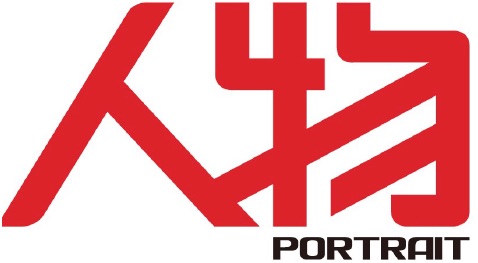
(Primary criteria for selection to the 2017 “Global 30” is the influence
on Chinese society. Political figures are not included in the selection.)
Ask the Global 30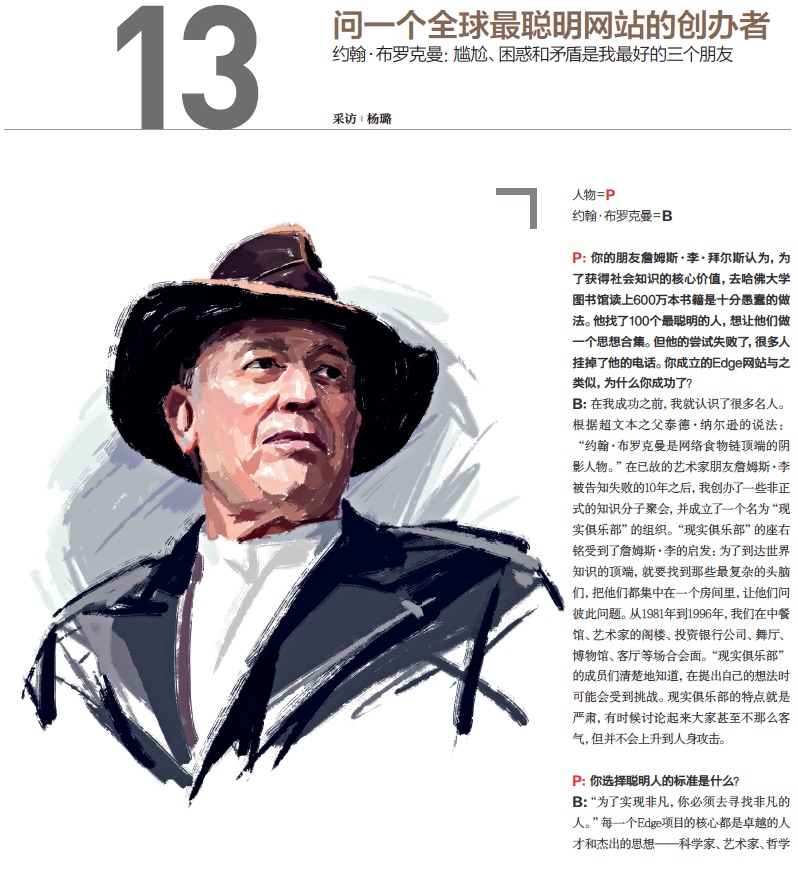
English
Interview | Yang Lu
13
ASK THE FOUNDER OF ONE OF THE SMARTEST WEBSITES IN THE WORLD
约翰·布罗克曼 John Brockman: Awkwardness, confusion, and contradiction are my three best friends
P: Your friend James Lee Byars believed, that to arrive at a satisfactory plateau of knowledge it was pure folly to go to Widener Library at Harvard and read six million books. Instead, he planned to lock the 100 most brilliant minds in the world in a room and have them ask one another the questions they'd been asking themselves. The expected result—in theory—was to be a synthesis of all thought. But it didn't work out that way. Byars did identify his 100 most brilliant minds and phoned each of them. The result: 70 hung up on him.
You created the website Edge.org which is very similar to Byars’s idea. Why did you succeed?
B: I had gotten to know the founders of the major internet companies when they were starting out and before they became successful. The founders of Amazon, Apple, Facebook, Google, Microsoft, Twitter, Tesla, have all attended my annual "Billionaires' Dinner." I am, according to software visionary and father of hypertext Ted Nelson, "the shadowy figure at the top of the cyber-food chain."
Ten years after the late artist-philosopher James Lee’s informed failure, I created an informal gathering of intellectuals who met from 1981 to 1996 in Chinese restaurants, artist lofts, investment banking firms, ballrooms, museums, living rooms and elsewhere. Reality Club members presented their work with the understanding that they would be challenged. The hallmark of The Reality Club was rigorous and sometimes impolite (but not ad hominem) discourse. The motto of the Club was inspired by James Lee:
To arrive at the edge of the world's knowledge, seek out the most complex and sophisticated minds, put them in a room together, and have them ask each other the questions they are asking themselves.
[ Continue... ]
Is the answer that we have run out of good questions?
By Kenan Malik February 17, 2018
John Brockman has run out of questions. Brockman, a literary agent, runs the science and philosophy site Edge.org. Every year for 20 years, he has asked leading thinkers to answer a particular question, such as: “What questions have disappeared?” or: “What do you believe is true even though you cannot prove it?” This year, though, Brockman announced that he has no more questions left. So he asked his final question: “What is the last question?”
“Judge a man by his questions rather than by his answers,” Voltaire insisted. Questions help us define what we don’t know and force us or others to justify what we think we do know.
Asking questions is relatively easy. Asking good questions is surprisingly difficult. A bad question searches for an answer that confirms what we already know. A good question helps to reset our intellectual horizons. It has an answer that we can reach, yet unsettles what we already know.

The last of Edge
By Arcadi Sword February 6, 2018
Since 1998...the editor John Brockman has asked these questions on his Edge page ( www.edge.org ) to a hundred long intellectuals...
Brockman...says he has run out of questions and this year he has launched the last one. The question is, obviously: What is the last question? A chrysanthemum is the flower that Katinka Matson has chosen for her ritual illustration. There are many answers to look for. This is from Ryan Mckay , a psychologist at the University of London: "Will we be one of the last generations to die?" Of Robert Sapolsky, neuroscientist at Stanford: "Given the nature of life, the purposeless indifference of the universe and our absolute lack of free will, how is it possible that most people are not clinically depressed?" But the best last question, of a Leibnizian nature, is that of the MIT physicist Frank Wilczek. Given its monumental size it is understandable that answering it can never be among the obligations that a newspaper has contracted with the news.
Why?


